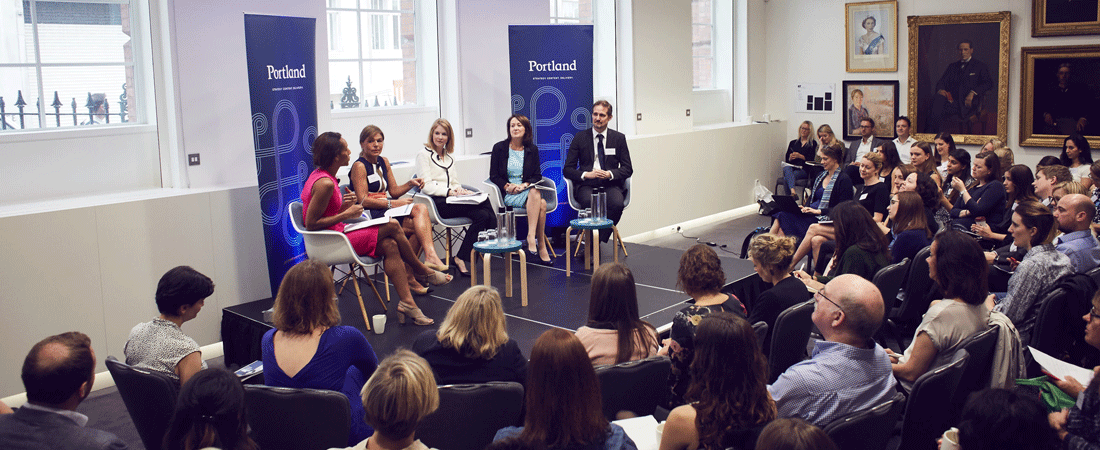Employers will benefit from getting ahead of the Gender Pay Gap and reporting early, according to a panel of experts assembled by Portland.
But in order to do so successfully, they must have a narrative and plan of action in place showing what they intend to do, said speakers at the Gender Pay Gap breakfast chaired by Portland’s Victoria Dean.
Dan Coles, head of Gender Pay Gap at Government Equalities Office (GEO), said that the government had listened to employers on the issue, and was committed to supporting them in the reporting process. ‘GEO has put employers at the heart of the process from the beginning,’ he said. ‘By reporting early you will have your employees and investors talking about how you are taking the initiative. We know that nearly everyone will have a gap at this stage.’
‘This is complex. There are many reasons for the gap. Women are still clustered in lower paid sectors such as caring and cleaning. They are less well represented in sectors like finance, and more women work part-time.
‘The business case for closing the gap is strong. It will help fill the skills gap, and McKinsey reports that bridging the gap could be worth £150bn in GDP to the country by 2025.’
There is still confusion between equal pay, and the pay gap, he said. ‘Paying men and women differently for the same job has been illegal for forty years now,’ he said. ‘This is about the gap between pay in the workplace as a whole.’
Emma Codd from Deloitte said that her company was proud to be a trailblazer in reporting on the issue, but that there had been challenges along the road. ‘We have previously reported twice before voluntarily,’ she said. ‘But it was different doing it through the official route. Of course we’ve got a gap, our problem is we have a gap at the top, there are just not enough senior women. We need to look at everything from girls’ GCSE choices to recruitment policy, losing women post maternity leave, and return to work’.
‘This is a long term process, and women in the organisation have really welcomed it. It is also an opportunity to tell a great story – we are leading from the top, we are transparent, and we can change.’
Phil McManus, formerly from Vodafone, BskyB and Rolls-Royce and a member of Portland’s Advisory Panel, said: ‘This is absolutely critical for business. You do not want to be on the back foot when the media interrogates the data. Talk to your workforce first. Hold your CEO and executive team to account. Knock on their doors this afternoon. This will create societal change.’
She added: ‘You can have positive ambassadors lower down the organisation – leadership doesn’t always sit at the top.’
Afua Hirsch, the writer and broadcaster who co-presents Sky’s The Pledge and was previously social affairs editor at Sky News said: ‘We have had more than a week of coverage of the BBC’s Gender Pay Gap, and a few ‘what not to dos’ have emerged.
‘It is not good enough just to say we are working on this. Journalists want to be able to say why this gap exists. Saying something vague just makes it worse, which is the trap the BBC has fallen into. If you do publish a timetable for change, you need to meet the deadlines. This is a story the media will seek to unpick – so businesses need to be prepared. This is a great opportunity to be proactive and contribute to the story in a positive way.’
The Government Equalities Office is keen to hear from organisations who want to report their gender pay gap ahead of the April 2018 deadline, and there are lots of opportunities to get involved in promotional activity in the autumn.
If you are interested to find out more, or have any questions on Gender Pay Gap reporting, please email [email protected].

